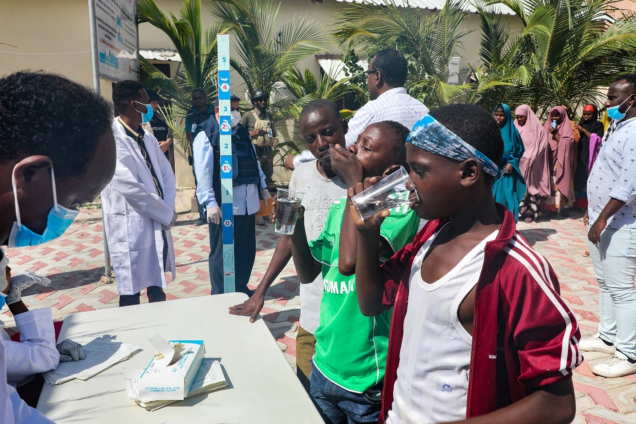With chronic underfunding threatening Africa’s fight to control and eliminate neglected tropical diseases, health officials and donors meeting for the World Health Organisation (WHO) Regional Committee for Africa have called for increased investments to end the neglected illnesses that affect nearly 400 million people in the region.
This year, around 99 million people in 26 African countries are at risk of missing out on treatment for diseases like lymphatic filariasis, onchocerciasis, soil-transmitted helminthiases and schistosomiasis due to insufficient funds for mass drug administration, according to a 2022 survey by WHO Africa’s Expanded Special Project for Elimination of Neglected Tropical Diseases.
Despite the challenges, Africa has made significant progress against neglected tropical diseases. Leprosy has all but been eliminated as a public health problem, with only the Comoros yet to achieve the elimination goal in one of its three islands.
Forty-two African countries have been certified free of Guinea worm. Six countries in the African region have eliminated trachoma as a public health problem, and in 2022, Togo became the first African country to eliminate four neglected tropical diseases.
“Africa has made great strides against neglected tropical diseases, with millions of people now living free of the pain and suffering caused by these illnesses,” said Dr Matshidiso Moeti, WHO Regional Director for Africa.

“But to secure and build upon these gains, further investments, including adequate, predictable and sustained funding are crucial to speed up the pace towards ending these diseases.”
The economic cost of neglected tropical diseases is high for affected families. Household income lost due to out-of-pocket health expenditures and wages lost due to these diseases is estimated to be at least US$ 33 billion per year, according to a WHO study on the rationale for continued investment in ending neglected tropical diseases.
Yet prevention and treatment of neglected tropical diseases count among the high-return public health investments, with an estimated net benefit to affected individuals of about US$ 25 for every US$ 1 invested, according to the WHO study. Measures to address these diseases have ripple effects in communities, including better education, health and employment outcomes.
In addition, many neglected tropical diseases control measures also rely on simple interventions that can be carried out by non-specialists, making community-based delivery possible.
Neglected tropical diseases are a set of 20 diseases or disease groups that occur predominantly in tropical and subtropical areas. They include lymphatic filariasis, more commonly known as elephantiasis, onchocerciasis or river blindness, schistosomiasis, or bilharzia, as well as human African trypanosomiasis, often called sleeping sickness, chronic ulcers and other skin infections.
These diseases can be devastating, including causing severe pain, disabilities and deformities, malnutrition, stunted growth and cognitive impairment. Anaemia caused by some of these diseases have a direct impact on maternal mortality.
The WHO global Neglected Tropical Disease global roadmap 2021—2030 seeks to reduce by 90% the number of people requiring treatment for these diseases and reduce associated disability by 75%. The roadmap, endorsed through the African Regional Framework for the control, eradication and elimination of tropical and vector borne diseases, encourages governments to provide leadership and commit to the achievement of global and national targets.
Latest Stories
-
Asantehene receives 28 looted artefacts
24 mins -
CAF WCL 2024: Ghana’s Thelma Baffour wins title with TP Mazembe
1 hour -
Benjamin Boakye slams politicisation of energy sector issues and ECG’s inefficiencies
1 hour -
Erastus Asare Donkor and Dr Neta Parsram win big at 10th Mining Industry Awards
2 hours -
Government is “suppressing information” about power sector challenges – IES Director
2 hours -
Majority of our debts caused by forex shortfall – ECG Boss
2 hours -
Pan-African Savings and Loans supports Ghana Blind Union with boreholes
3 hours -
Bole-Bamboi MP Yussif Sulemana donates to artisans and Bole SHS
3 hours -
Top up your credit to avoid potential disruption – ECG to Nuri meter customers
3 hours -
Dutch & Co wins 2024 Entrepreneur of the Year Award
3 hours -
We’ll cut down imports and boost consumption of local rice and other products – Mahama
6 hours -
Prof Opoku-Agyemang donates to Tamale orphanage to mark her birthday
7 hours -
Don’t call re-painted old schools brand new infrastructure – Prof Opoku-Agyemang tells gov’t
7 hours -
Sunon Asogli plant will be back on stream in a few weeks – ECG
7 hours -
ECOWAS deploys observers for Dec. 7 election
8 hours

